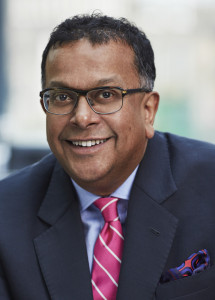As the British referendum on EU membership draws closer, Iqbal Wahhab considers what Brexit might mean for SMEs.

Have you always thought the debate about whether we stay in or leave the European Union is for other people? Government ministers arguing with the prime minister, or the heads of large corporations posturing over what they will do once the in-out referendum result is known?
I used to see the arguments in the media and at conferences as having no relevance to a small business with aspirations to become a medium-sized one. Then a few months ago the MEP, Daniel Hannan, suggested to me that exiting the EU, a move he strongly supports, would allow businesses such as mine to recruit people living beyond Europe – the Commonwealth countries, for example, from where people could come to the UK and take jobs which many here don’t want.
Sharing his views with industry colleagues brought little response, so I dropped the matter and reverted to my default setting of not caring. Then a celebrity friend, the TV presenter June Sarpong, told me she was joining the board of Britain Stronger in Europe. And so too was Lord Rose, and once again I knew this was a big business subject.
I started wondering on a macro level about the implications for our economy but, more selfishly, I asked: Am I missing a trick in not thinking about mainland Europe to grow my business? Speaking to the head of United Europe showed me that I probably was. Two out of every three employees in Europe work for an SME and we account for 58 cents in every euro of valued added to Europe. I also found out that 17 per cent of Britain’s SMEs already export to Europe, only slightly behind leaders Germany. Largely this is business-to-business work, which is probably easier to execute than taking, say, a restaurant brand into the EU.
Scratching beneath the surface of this reluctance is something much shallower, though. Although I did French and German O-levels at school, I am one of those dreadful Brits abroad who expects everyone to speak English and gets annoyed when they don’t. So, like most London restaurateurs, I think of New York for international growth and it transpires that 43 per cent of British SMEs export to the US – by far the biggest percentage in all European countries. Ironically, most UK restaurant companies that go to the US soon return home broken – yet we all think it will be different when we set up there. Perhaps we’re seduced by a language in common.
I tried taking The Cinnamon Club to New York more than a decade ago and after watching how unions behave over there (at one meeting with the head of the hospitality union I thought I was in a scene from The Sopranos) I decided it was a better place to go for fun than to do business. I might still launch in America one day, but maybe with a local partner who knows the ropes there.
With a single European market there are uniform industry standards and frameworks so opening, say, a curry house in Berlin, which I have often been asked to do, does not deserve the disdain I have given the idea in the past. For a country obsessed with beer and the currywurst, I should be jumping at the opportunity rather than rejecting the prospect.
While retailers may worry about how they will fare in unknown markets, tech firms are making headway in the EU – in Berlin a new Silicon Valley is emerging and a lot of my tech friends from London have moved there. By standing still in the dynamic European commercial market, not taking up the many growth opportunities that lie closer to home than in the US, SMEs are going backwards.
This column by Iqbal Wahhab, a member of United Europe, was first published in Directors Magazine. The author is a well-know British entrepreneur and founder of “Roast” Restaurant. For his achievements, he was honoured as Officer of the Order of the British Empire and Fellow of the Royal Society of Arts.


